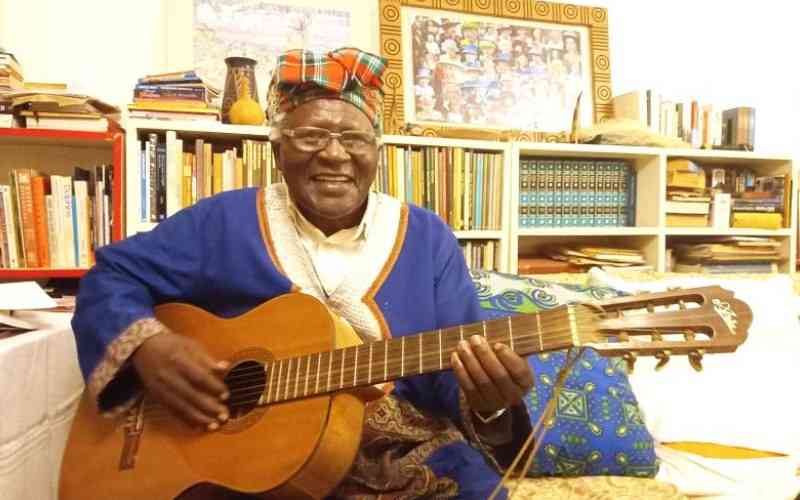×
The Standard e-Paper
Stay Informed, Even Offline

At his home in Nairobi's Langata Estate, Nairobi, David Maillu holds a copy of Prince Harry's memoir, 'Spare'.
It is one of the hundreds of books on the shelves within the living room that he shares with African sculptures, family photos, a vase with fresh flowers from his garden, and dozens of manuscripts including one on witchcraft.